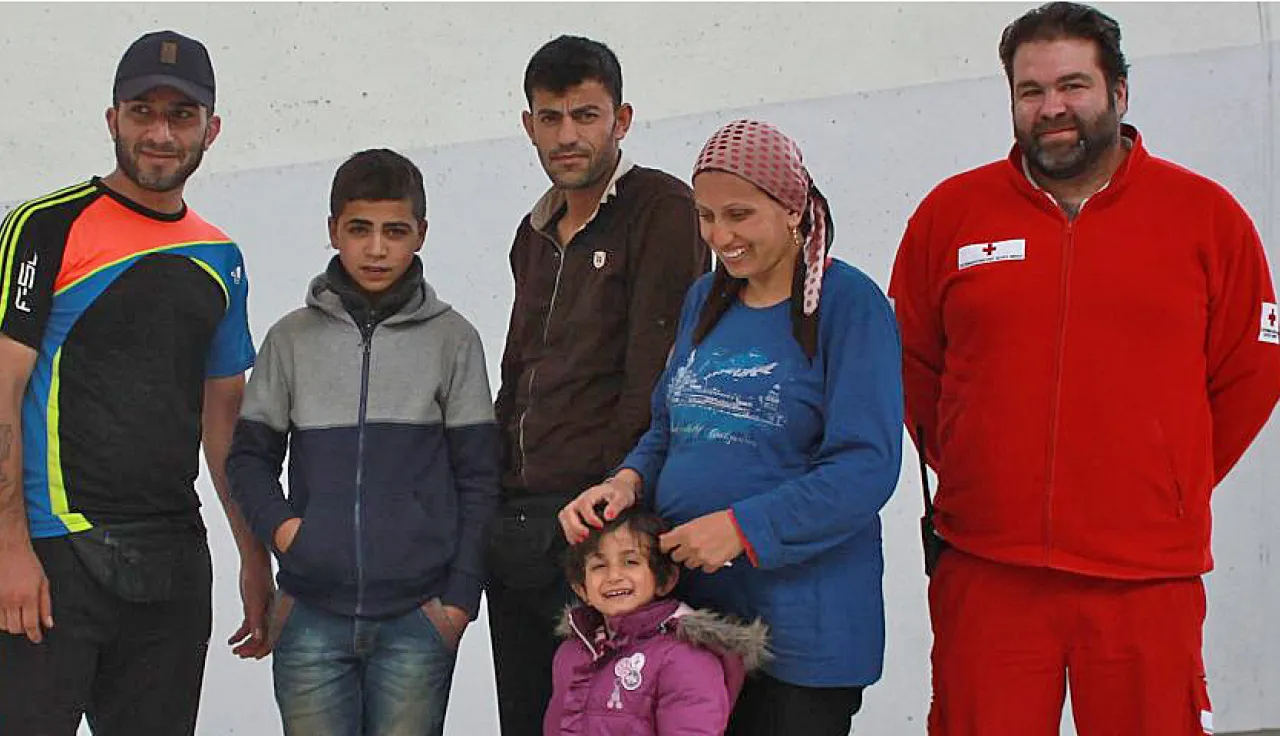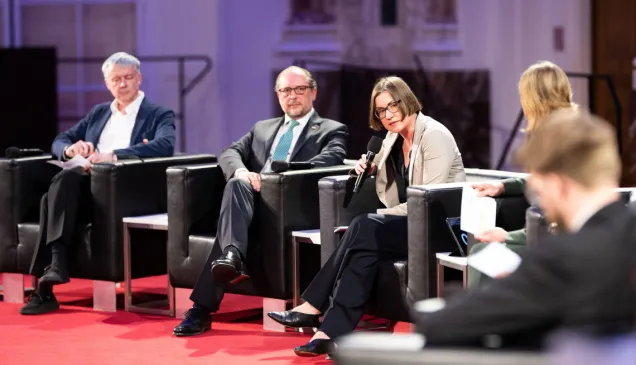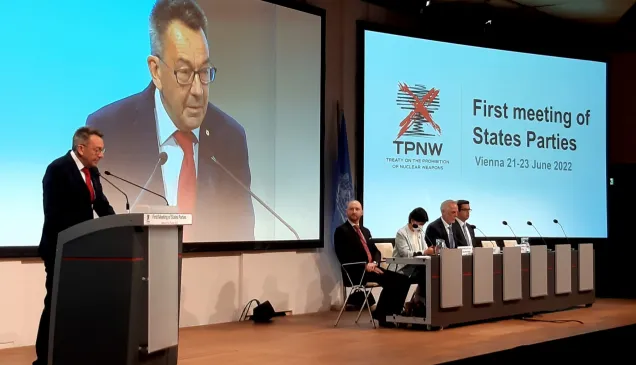Austria: Separated refugee family reunited in Salzburg

Refugee families often get split up during their long journey to safety – but the Red Cross Tracing service with its world-wide network is specialized in finding missing persons.
The first tracing office for refugees in Austria opened on 8 September in Salzburg's main railway station. During flight and migration, family members often lose contact with each other. When it comes to tracing missing persons and reuniting families, the Austrian Red Cross can call on a world-wide structure and an experienced network.
"The Red Cross in Salzburg has therefore expanded its existing service at the main railway station and is helping the authorities to reunite separated families," says Salzburg's regional Red Cross rescue commander Anton Holzer.
Desperately seeking Dildar
The Salzburg tracing office was able to reunite its first family the day it opened. The Ibrahim family lost contact with their eldest son Dildar Ali in the turmoil at the Westbahnhof, the station on the west side of Vienna. When the family arrived in Salzburg, it immediately contacted the Red Cross staff. Luckily, their 14-year-old son was quickly found, still at the Westbahnhof, and the family was reunited in Salzburg a few hours later.
"For many families torn apart as they flee, the search takes much longer" says Claire Schocher-Döring, head of the Austrian Red Cross tracing service. "On long and difficult routes, the risk of family separation increases. Often, refugees are not registered, which makes things even more difficult because we have no information."
The Austrian Red Cross tracing service searches for missing persons within Austria, and abroad via its international network. As well as searching in Austria, the service passes photos and information on to Hungary or Germany if it seems possible that the lost relatives might be located there.
In addition, tracing experts comb through websites that specialize in tracing missing persons. Only recently, they were able to help a Syrian father trace his five-year old son in Greece. (Read the full story in German on the Austrian Red Cross website).
The International Red Cross and Red Crescent Movement have two websites to help people trace missing relatives: familylinks.icrc.org and tracetheface.org.
"Trace the Face" focuses on helping refugees in Europe. The site carries the photos of people looking for their relatives. Their personal details and whereabouts are known only to the Red Cross, and are not published. 23 Red Cross societies all over Europe are participating in this project, which is supported by the ICRC.
The site already displays more than 300 photos of people in Europe who are searching for their relatives. "Currently, the majority of refugees publishing their photo in the hope that a relative recognizes them come from Afghanistan, Somalia, and Syria," explains Schocher-Döring.
Read the original article, "Getrennte Flüchtlingsfamilie in Salzburg wieder vereint" on the Austrian Red Cross website.



